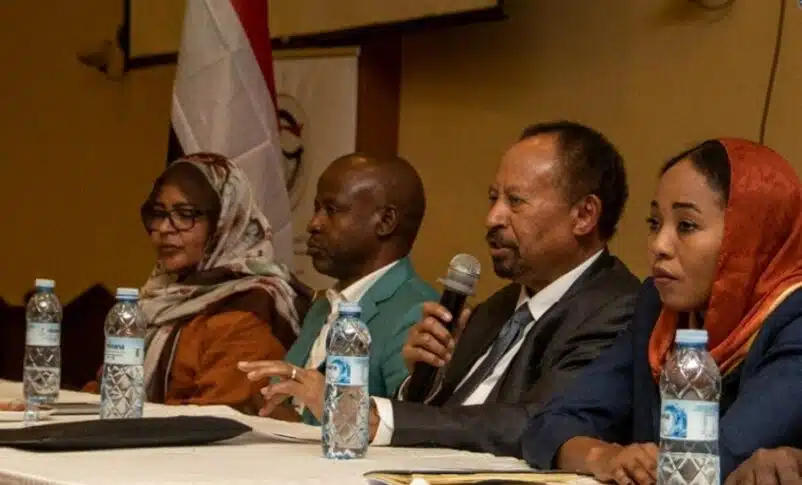
A coalition of Sudanese political factions, including some members of the “Tagadum” alliance, the “Qimam” alliance, the National Umma Party, and other groups, are finalizing preparations to form a parallel government in opposition to the current government in Port Sudan.
According to a statement from the coalition, the involved parties have held continuous meetings in Nairobi over the past two weeks to finalize the interim constitution, political charter, and government program. The parallel government, with the participation of political and civilian components, is expected to be announced soon in areas controlled by the Rapid Support Forces (RSF).
Osman Abdel Rahman Suleiman, spokesperson for the United Civil Forces (Qimam), told Sudan Tribune on Saturday that the parties will sign the political charter on February 17.
Abdel Rahman said that the specialized committees drafted an interim constitution for the planned government, confirming the participation of Qimam and a number of Tagadum components, in addition to the participation of the National Umma Party led by Fadlallah Burma Nasir, the Unionist National Party, (the Original), and components of the Sudanese Revolutionary Front, except for the SPLM-N Revolutionary Democratic Current led by Yasir Arman.
The list of signatories also includes a number of civil and community forces and political figures.
Abdel Rahman revealed the formation of a Sovereign Council with broad powers and specific tasks, the formation of a Council of Ministers, in addition to a “National Legislative Council” of 150 people, with estimated representation of women and anti-war forces.
He added that the parallel government would include a number of commissions affiliated with the Council of Ministers, while other commissions will be under the supervision of the Sovereign Council.
The parallel government structures at the state level included executive governments and legislative bodies (the State Legislative Council), which will be determined according to the population weight of the state.
The state government is headed by a “governor” and a state council of ministers consisting of (5-7) ministers, and in the localities, also “legislative councils”, along with a local executive authority.
He said that among the basic tasks of the upcoming government are protecting civilians, providing basic services, providing humanitarian assistance through communication with the international community, and neutralizing the air force.
The spokesman for “Qimam” stressed that the upcoming government is a government of peace that came to unite the Sudanese and address any plan to divide Sudan.
He mentioned that the upcoming government is comprehensive for all Sudanese wherever they are, and its scope will extend according to the operations of liberating the areas controlled by the army.
The “Qimam” coalition, which allegedly supports the RSF leader, includes about 70 political and social organizations that signed the coalition charter. These include armed groups that had previously signed peace agreements, headed by the Sudan Liberation Movement / Historical Leadership, the Reform and Renewal Movement, and the Sudan Liberation Movement / Field Leadership, in addition to a number of community organizations.
Components of the “Tagadum” alliance, led by the Sudanese Revolutionary Front, with the exception of Yasir Arman, and the National Umma and Unionist National parties, and political figures such as former Sovereign Council member Mohamed Hassan Al-Taishi, have joined the proposal to form the government.
A report by the political mechanism in the “Tagadom” alliance suggested disengaging from those supporting the formation of a parallel government and abandoning the alliance’s name and choosing another name, which means dividing the large anti-war alliance.
